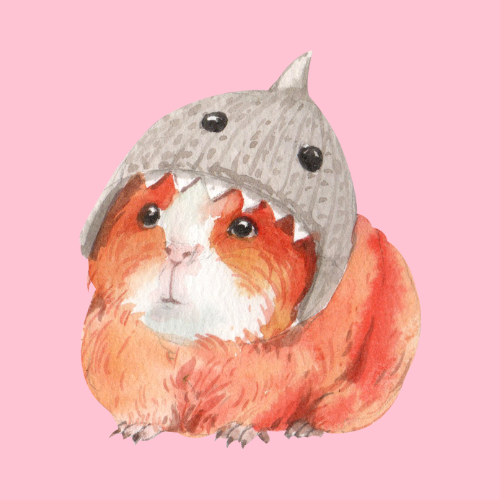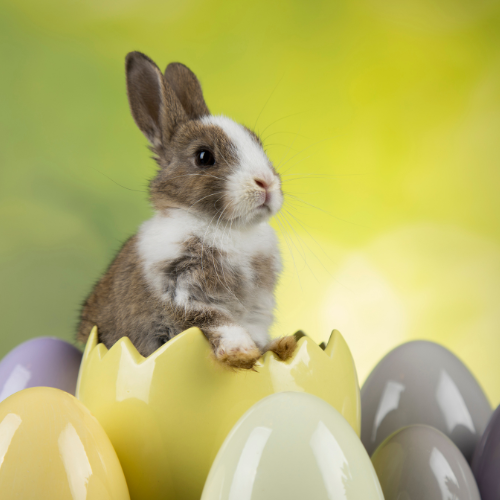Are Ducks Affectionate – Duck Emotions Explained
Yes, ducks are extremely affectionate animals contrary to popular belief and like to show their affection in many different ways. Ducks show affection by nibbling, cuddling, allowing you to pet them, following you, and making quiet chirping sounds. Today we are going to discuss these affection behaviors in a little more in-depth and explain what you need to do to make your ducks affectionate with you.

Ducks when given the proper upbringing, conditions, and the right owner can become some of the most affectionate animals known to man. Ducks who love their owners are known to show their appreciation and love towards their owners similar to that of more commonly known domesticated animals like dogs or cats. It’s no wonder that more and more people are becoming proud owners in recent years.
Do Ducks Show Affection to Humans?
Ducks are surprisingly capable of complex emotions far beyond what we give them credit for although the range of emotional expression is often hotly debated there are some clear-cut examples of emotions that we can recognize not only in ducks but also in other wild birds.
Ducks are capable of a wide range of emotions such as love, fear, sadness, anger, and of course happiness and joy. It’s important to recognize although ducks are capable of complex emotions, the level and depth of these emotions are incomparable to that of a human.
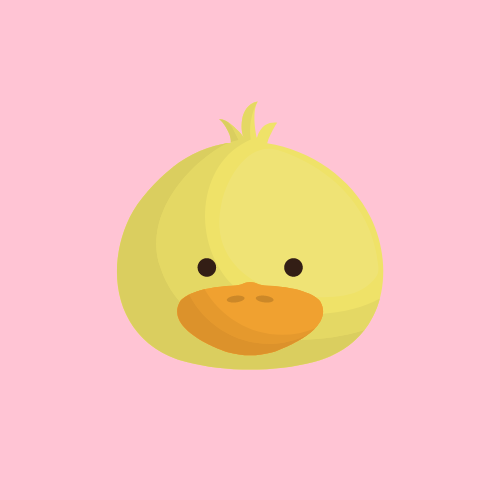
It’s also important to understand that humans and ducks have completely different brains, we as humans have the ability to express and understand emotions on an entirely different level and this should not be expected of a duck. Most ducks act on their emotions based on things they want/need to survive such as food or protection.
Top Duck Signs of Affection
These are the top 5 signs of affection displayed by ducks we have witnessed;
1. Affectionate Gentle Nibbling
Ducks nibble for many reasons. If it’s a light gentle nibble we usually perceive this as affection or there’s a possibility they are looking for food. Sharper, painful nibbles are usually a duck’s polite way of showing you it doesn’t want to be touched. Nibbling is also a preening behavior meaning the duck wants to clean you, similarly to how a cat or dog with lick you. Generally, any type of nibble that comes from a relaxed body language is seen as affectionate.
2. Cuddling (Pushing Their Beak Against Your Body)
Ducks like many other animals love to cuddle. It’s not uncommon to see a duck cuddling up to its owner or other ducks for some physical attention. Ducks will cuddle with people or other animals they feel safe with. Ducks especially like to push their beak into your body mainly because a ducks beak is full of nerve endings similar to our hands and it feels good for them to rub their beak against you.
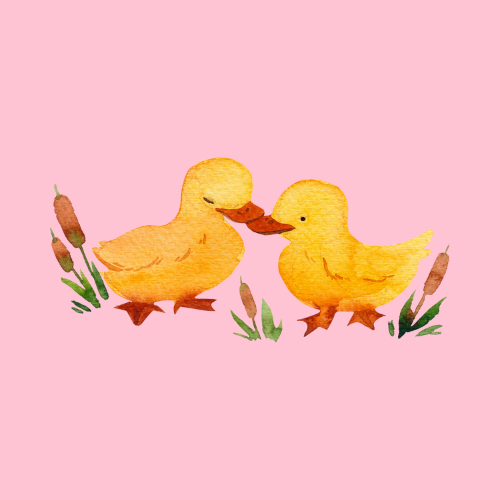
If a duck cuddles with you it’s a clear sign that the duck trusts you, especially if a duck falls asleep while cuddling you. This is the duck basically saying its trusts you to protect them even in its vulnerable state.
3. Allowing You to Pet Them
Ducks generally do not like to be petted (despite people claiming they do). They usually don’t even like being petted by people they are comfortable with, so if your duck lets you pet it you can be sure it’s very conformable and affectionate with you.
There are some ducks that do enjoy it and will even seek out a head pat at times. A duck’s behavior towards petting is all about the individual personality of the duck. It can also depend on the location you pet the duck apparently ducks prefer to be petted underneath their wings. So maybe you can try petting there and see how it goes!
4. Your Ducks Follow You
Some ducks will follow their owner. This is usually because they have a sense of attachment toward their owner. This behavior is most commonly displayed in younger ducks and will become less and less common as your duck grows older and becomes more independent. This is an obvious display of affection as your duck is wanting to follow you because they want to be around you. It means they trust you and feel safe being near you. They might even believe you will protect them and provide food for them.
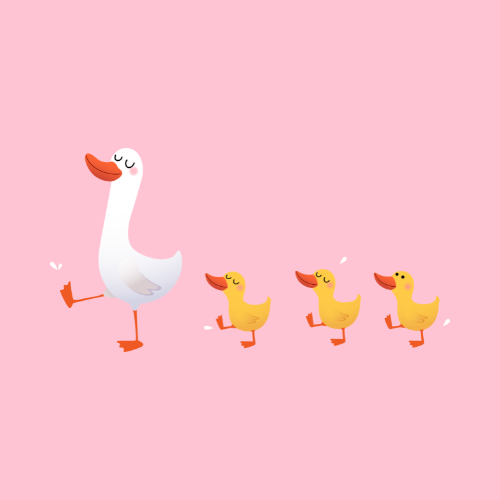
Generally, we suggest you try to avoid this kind of behavior if possible. When a duck as this sense of attachment to its owner it can be quite stressful. The duck will constantly wonder where its owner is and feel a sense of panic when the owner is not present. It’s not healthy for a duck to have such a strong sense of reliance on its owner.
Quiet Soft-Sounding Chirps
Ducks will often make a quiet soft-sounding chirp which is a display of affection. Ducks make many different sounds in different ways and the easiest way to figure out what your duck is trying to communicate is by looking at its body language. You can gauge the type of sound usually by volume and frequency. Duck chirps that are quiet and soft are usually associated with affection.
How Should I Bond With My Ducks
When a baby duck is born it goes through a process called imprinting. This is a huge deal for ducks because the duck/human that they imprint on becomes their protective figure, similar to how a human child does with its parents. This is the main way you can bond with your ducks. The duck will show the majority of its affection to this one specific person/animal for the rest of its life.
Ducks that have bonded with a human by imprinting on them are more likely to be more social and affectionate to other humans too. The opposite is also true, if a duck has imprinted on another duck the chances of it being more relaxed and affectionate to humans are much lower.
So if you want your duck/ducks to be affectionate mainly to you it is important that you try to spend the first couple of days (weeks preferably) around your newborn ducklings to ensure that you are recognized as the protective figure in their life.
It’s important to understand that imprinting is a deep bond between the duck and its chosen parent. Ducks will seek to acquire love and attention from their parent. Ducks are similar to dogs in this regard, they possess elements of loyalty and express their love and recognition. Ducklings are attached and bonded for life with their chosen guardian. If you decide to take on this role just be aware it will be a commitment for the entire duration of the duck’s life.
- Can Hedgehogs Swim? [Interesting Facts]
- Why Do Hermit Crabs Chirp? [Most Common Reasons]
- How High Can A Chinchilla Jump? [Ultimate Guide]
How to Tell if a Duck Likes You?
When it comes to determining the fondness and affection of a duck towards its owner, there are various physiological and behavioral indicators that are commonly observed. One of the most prominent signifiers of a duck’s positive sentiment towards its owner is its level of comfort in close proximity. If a duck is at ease with an individual, it is less likely to exhibit defensive postures such as hissing and flapping its wings, which are typical responses when a duck feels threatened or intimidated.
In addition to the absence of such warning signals, ducks that hold a fondness for their owners are also known to produce soft, melodic chirps, which serve as a vocal expression of their contentment and joy. Furthermore, a duck may also initiate physical contacts such as cuddling or gently nipping at its owner as a manifestation of its attachment and affection. These actions serve to further reinforce the bond between the duck and its owner and are clear indicators of a duck’s fondness and admiration for its owner.
Ducks Are Social Animals
If you have a duck or are planning on buying one, it’s important to consider that ducks are extremely sociable animals. They have a strong desire to be around other ducks and will get lonely if they are left alone. This can lead to ducks becoming stressed and aggravated and we certainly don’t want that.
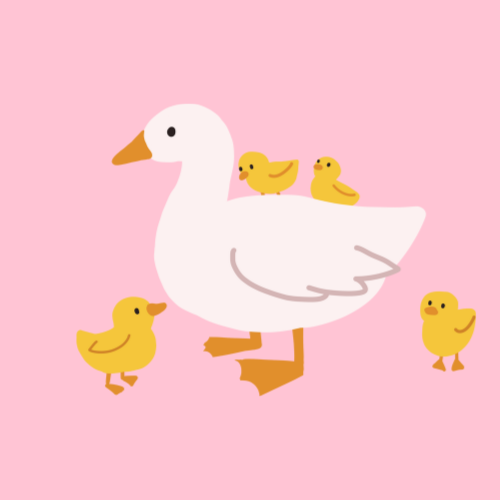
I recommend buying at least a couple of ducks to avoid this happening. It’s common sense really, with any social animal it’s better if they have others around them to be social with.
Different Breeds of Duck Are More Affectionate
In total there are 23 breeds of domesticated ducks with endless amounts of hybrids. The affection and general temperament of a duck can also be based on its genetics. Just like dogs, there is a huge range of variables between the different breeds not just including color, shape, and size.
Each duck breed has a different genetic baseline for temperament.
Combine the different duck breeds with different living conditions and environments and you can expect to see many different results. If you are considering getting ducks as pets we recommend you do a decent amount of research into which duck breeds have which temperaments naturally.
Tell Us About Your Pet Ducks!
Are you a duck owner? What signs of affection does your duck show to you? I’d honestly love to hear some of your stories, please share them in the comments!

Doctor of Veterinary Medicine (D.V.M.) at Nation Taiwan University,Master of Science (M.S.) in Biomedical Engineering at National Taiwan University of Science and Technology



